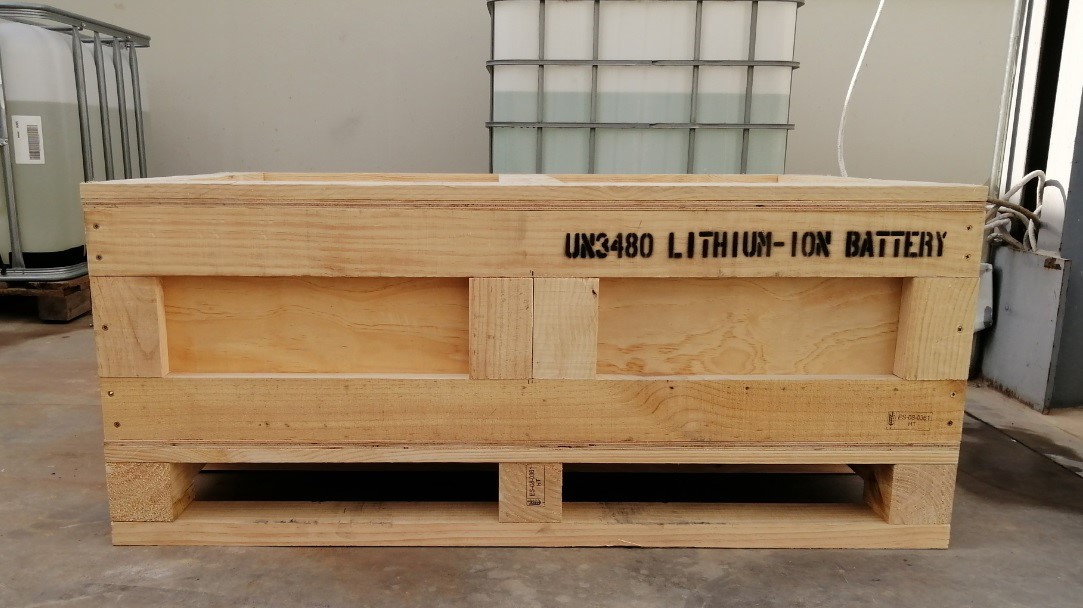ITENE will analyse the risks of road transport of food and electric batteries to optimise their packaging and improve their safety during distribution
In the EUROPE-BAT-TRANS project, financed by IVACE with Feder funds, the research centre works to assess the real effect that the distribution has on the product or the load in order to improve the efficiency of the packaging, reducing costs and the associated environmental impact.

The ITENE research centre will analyse the risks of road transport of products of the fruit and vegetable sector and batteries for electric and hybrid vehicles in order to carry out test protocols to improve their packaging and, thus, their safety during the distribution stage.
This research will be carried out within the EUROPE-BAT-TRANS project, financed by the Instituto Valenciano de Competitividad Empresarial (IVACE) with Feder funds and executed by ITENE between June 2023 and June 2024.
Through this project, the real conditions of transport will be known, which, according to the Project Manager, Patricia Navarro, “is key to help reduce losses and environmental impacts derived from the distribution and, consequently, to improve the benefits and the positioning against competitors”.
Specifically, the project will focus on identifying the mechanical and climatic risks associated with European road transit in order to obtain test protocols that can be reproduced to validate the packaging system. In order to check the suitability of the test protocols developed, two case studies will be selected, one for the fruit and vegetable sector and the other for the electric and hybrid vehicle rechargeable battery sector.
First of all, the mechanical and climatic risks of 8 to 10 road transport routes of several companies will be monitored and quantified by means of a measuring device. The mechanical risks (vertical vibration, angular movements: roll and pitch and shocks) will be measured by means of the data recorder device, developed by ITENE.
Once the data of the selected distribution routes have been analysed, associated test protocols will be developed to reproduce, in the minimum possible time, the real conditions of the distribution cycle in the Transport Simulation Centre at ITENE’s facilities. Thus, the real effect of the distribution on the product or the load will be determined in order to improve the efficiency of the packaging, reducing costs and the associated environmental impact.
Validation for the fruit and vegetable and electric battery sectors
The protocols associated with the European road distribution routes developed will be applied to the two selected case studies. The results will be compared with the protocols included in the norms and standards applicable to each of the sectors.
In addition, in the case study of the fruit and vegetable sector, together with the validation of the developed test protocol, the vibration test will be implemented by improving and fine-tuning the coplanar vibration table, located in ITENE’s facilities.
Likewise, in the case of the study of rechargeable batteries for hybrid and electric vehicles, the protocol obtained through the project will be used to validate the packaging system against the risks of the distribution cycle”.
The project manager emphasised that “the consideration of distribution risks in the initial design stage, as well as in the subsequent validation of the packaging system developed together with the battery, are key to avoid incidents during the actual handling and transport stage”. In fact, the researcher highlighted “the sensitivity of electric batteries to vibrations and impacts, which are common during distribution”.


